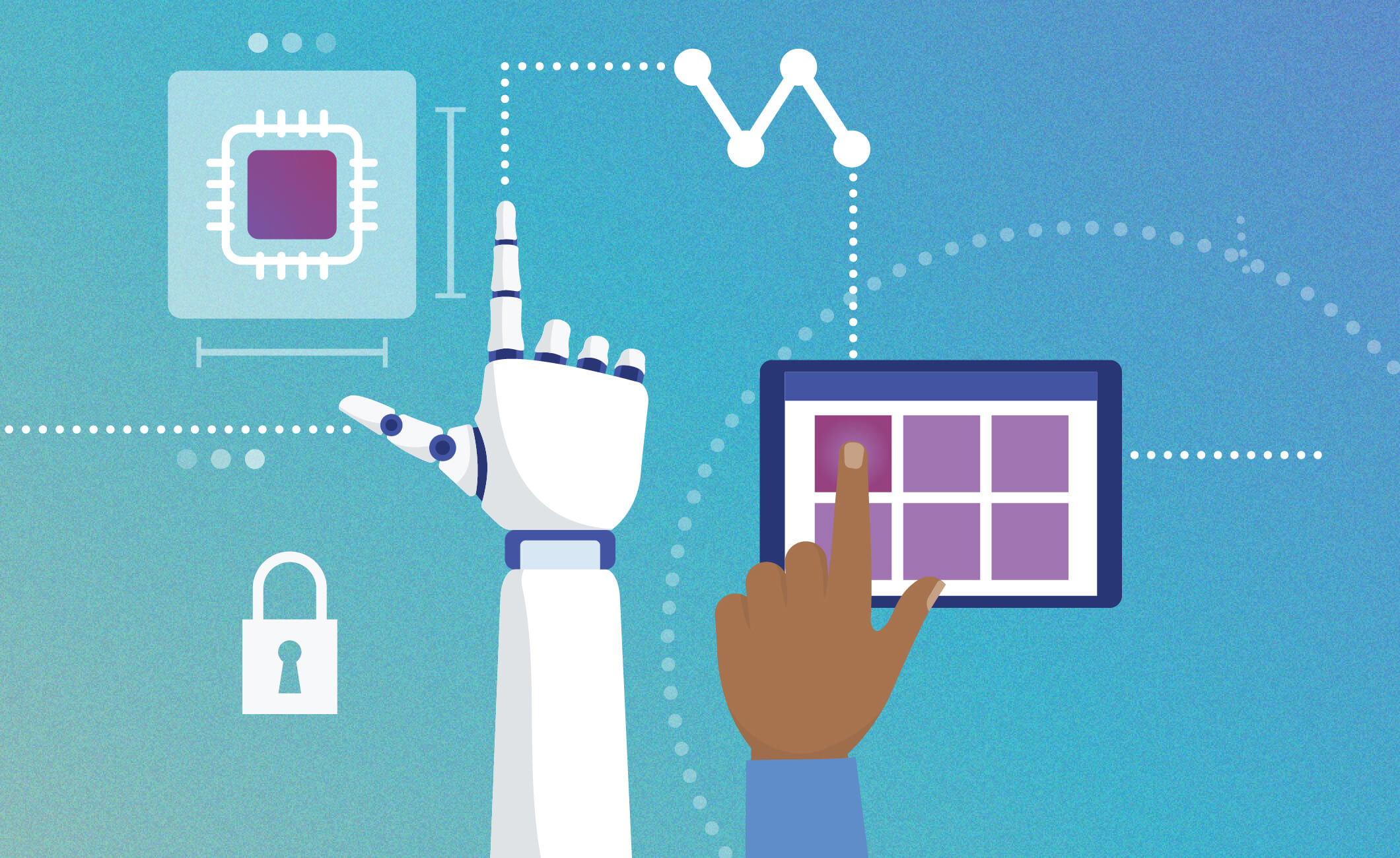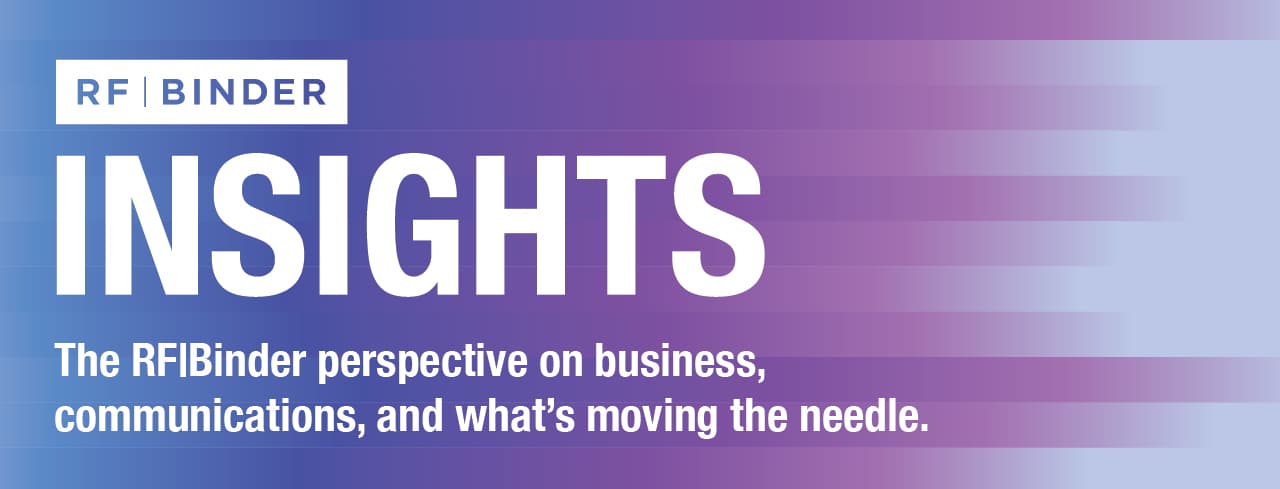For RF|Binder’s latest Hour to Empower, we had the opportunity to learn from Marina Petrova and Bruce Amick, the co-founders of Intentful, a company that leverages AI to create content. Both Marina and Bruce are early adopters of AI and NLP and spoke to us about the transformation in the content creation space given data and AI and the implications of it in building brands and reputations. RF|Binder hosts Hour to Empower sessions on a quarterly basis, bringing in a diverse mix of speakers and thought leaders to inspire reflection, strike up meaningful conversations with our colleagues, and drive impact for our clients. This event was part of RF|Binder’s Women’s History Month programming.
What is the Experience as a Woman in AI?
As a women founded and operated integrated communications firm, it was an honor to have Marina Petrova speak to our firm about her journey as a female executive and entrepreneur. Marina has 20+ years of experience working with businesses and consumers in more than 50 countries. Her digital marketing experience includes hundreds of projects launched for Colgate, Hill’s, General Mills, Air France / KLM, GM, National Geographic, and HP in addition to holding senior management roles with Publicis, WPP, and New York Online. Her pivot into the AI space, a predominantly male dominated industry, proved to be no challenge for her. According to the World Economic Forum, only 22% of AI professionals are women as of August of last year. Despite the gender disparity, Marina stated that the key to proving yourself is to continue showing your value through actions and to drive impact. This is a very similar value that we hold at RF|Binder imparted on us by our founder, Amy Binder, who has blazed her own path in the communications world as a woman entrepreneur to create an organization built on diversity, equity and inclusion.
What is AI?
Marina Petrova opened by saying “it was more difficult to explain what AI was last year compared to now,” due to the recent strides in the space that only seem to keep coming. According to Marina, “in the simplest terms, AI refers to systems or machines that mimic human intelligence to perform tasks and can iteratively improve themselves based on the information they collect.” These systems and machines are large language models (LLM) that are trained on billions of parameters in order to deliver concise answers. A well-known example of this is ChatGPT, the chatbot application powered by the large language model GPT-3. However, GPT-3 is only one of the many LLMs in existence.
How is AI Transforming the Content Creation Space?
Plain and simple, new generative AI technology is greatly impacting the content creation space and will continue to do so. These large language models are now able to produce content to a specific query in mere seconds by predicting the next word based on the parameters it was trained on. For example, AI-powered chatbots can create unique responses to customer inquiries, giving them a more personalized experience than relying on a generic logic tree. Companies like Intentful are already harnessing AI’s power to help brands rapidly scale their content creation by training their AI technology on the brand in order to produce data-driven, high quality content in the specific brand’s voice – all at the fraction of the cost and time of traditional content creation methods. Although AI is helping to make content creation an easier process, there are still many limitations that require humans to be at the helm to guide it.
What are the Limitations of AI?
AI has made some great advancements over the last 5 years helping to make content creation more efficient and accessible, but it does come with some limitations. One of the significant limitations is its creativity. Without guidance from humans, AI cannot produce truly original content or come up with innovative ideas on its own. AI may not be able to capture the tone or voice of a particular brand or audience, leading to a mismatch in the style of the content. Branching off this, AI is a robot and robots (as of now) lack emotional intelligence, which can make it challenging to create content that resonates with people on an emotional level. This leads to issues revolving around ethical considerations. Based on the parameters that it is trained on, AI can surface biased, inaccurate, misleading and sometimes even harmful content that needs to be monitored by humans to correct. Because of these limitations, humans play a critical role in leveraging AI as a tool just as we use so many other technological tools today.
What is the Role of Humans?
Based on these limitations and that AI is still an evolving field, humans are still necessary to create, monitor, and guide AI-generated content. Humans can provide feedback and make adjustments to AI-generated content to ensure that it meets the desired standards. While AI can automate many aspects of content creation, humans are needed to provide creative input, quality control, and ensure ethical considerations are taken into account.

